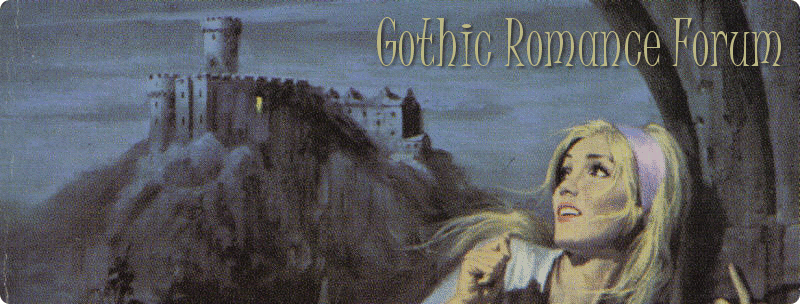12-03-2011, 04:22 PM
Gemini in Darkness is a contemporary (1970) suspense novel of the sort that leaves me saying, "Well, that was marginally OK, but where's the Gothic?" Unfortunately this is what happened when demand exceeded supply during the Gothic glut of the late '60s and early '70s -- all the publishers wanted to cash in on the craze but few of the books offered up as Gothic fare actually lived up to the genre's name.
The updating of the formula in this case amounted to the young heroine, Diana Lewis, taking a job as editor of the in-house magazine for an astrological prediction operation run by a mysterious and saturnine (my word, not Ross's) Vincent Price type called Dr. Martin Gill. Of course he is hawk-faced with a domed bald head -- all of Ross's stock characters are cartoon stereotypes. From the description of the urbane Dr. Gill I knew immediately that he was the mad scientist type. There's no creepy laboratory in the cellar but it's obvious that he's running some sort of shady outfit. The figurehead of the organization is the ancient spiritualist Madame Helene, who is repetitiously described as a waxen-faced frail old woman eccentrically garbed in 1920s glamourwear. Apparently that means she's ethereal and possesses extraordinary gifts and sights into the paranormal (or so we are told -- we never glimpse any evidence of this).
Madame's claim to fame is that some of her astrological predictions of disasters have come true with chilling accuracy. This of course brings in large swarms of believers who pay for Madame to deliver more predictions. You begin to wonder by the third or fourth of these why her organization isn't under investigation.
From the beginning this story is tediously predictable. I kept reading only to see if Ross might at some point make the effort to deviate from the formula even in one or two details. He didn't.
Most of the deficiencies in the writing -- over-dependence upon coincidence, two-dimensional characters, contrived dialogue, a simplistic and colorless prose style -- might be forgiven in the case of a genuinely interesting atmosphere or compelling storyline, but the one unpardonable offense committed by Ross here (as in many other books) is the TSTL (too stupid to live) protagonist. Miss Lewis knows she is in grave peril and yet she is free to leave the "sinister mansion on Beacon Street" at any time she wishes. Only . . . she doesn't. She talks herself out of it. Why? She wants to find out what's really going on there. She can't go to the police because she doesn't have any evidence and they wouldn't believe her. That might explain why she doesn't go to the police, but it doesn't even begin to explain why she remains in such a pointlessly threatening situation. The only reason I, as a reader, can imagine, is that Ross needed her to stay there until the end of the story.
This novel might have, in the hands of a better writer, made a truly suspenseful and Hitchcockian story, but Ross is not that author. His talents more resemble what used to be called in Hollywood an "idea man," one who pitched loosely formed storylines to writers. But whenever I read one of his novels, I think, "The concept itself wasn't bad, if only someone else had actually written the book."
I would rate this book 4 out of 10, being generous.



